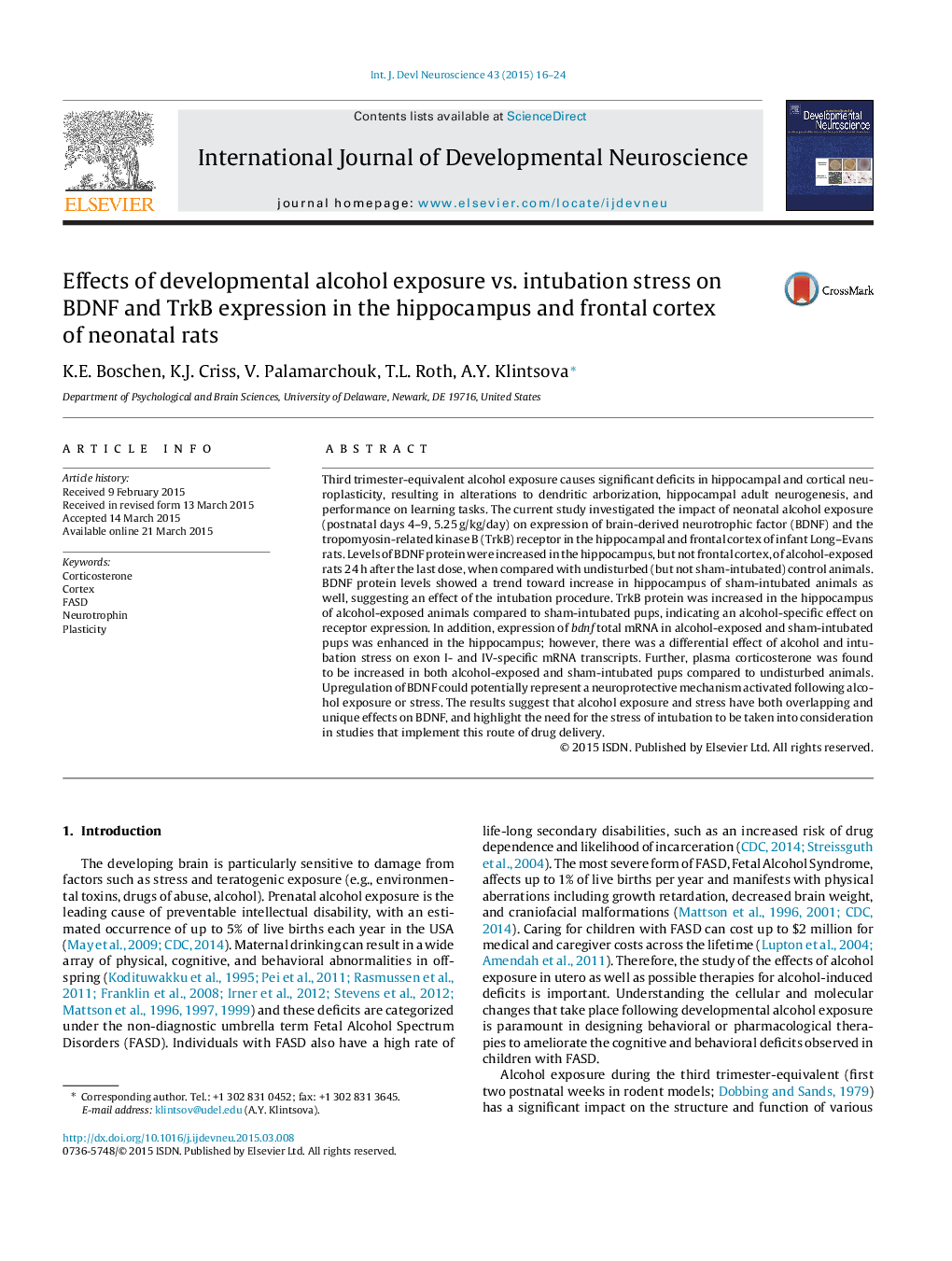| Article ID | Journal | Published Year | Pages | File Type |
|---|---|---|---|---|
| 2785709 | International Journal of Developmental Neuroscience | 2015 | 9 Pages |
•We use a model of third trimester-equivalent binge alcohol exposure in rats.•We investigated levels of BDNF and TrkB in the neonatal hippocampus and cortex.•Neonatal alcohol increased bdnf exon I mRNA and TrkB protein in the hippocampus.•Alcohol and intubation raised hippocampal BDNF protein and total and exon IV mRNA.•Plasma corticosterone was increased in alcohol-exposed and sham-intubated animals.
Third trimester-equivalent alcohol exposure causes significant deficits in hippocampal and cortical neuroplasticity, resulting in alterations to dendritic arborization, hippocampal adult neurogenesis, and performance on learning tasks. The current study investigated the impact of neonatal alcohol exposure (postnatal days 4–9, 5.25 g/kg/day) on expression of brain-derived neurotrophic factor (BDNF) and the tropomyosin-related kinase B (TrkB) receptor in the hippocampal and frontal cortex of infant Long–Evans rats. Levels of BDNF protein were increased in the hippocampus, but not frontal cortex, of alcohol-exposed rats 24 h after the last dose, when compared with undisturbed (but not sham-intubated) control animals. BDNF protein levels showed a trend toward increase in hippocampus of sham-intubated animals as well, suggesting an effect of the intubation procedure. TrkB protein was increased in the hippocampus of alcohol-exposed animals compared to sham-intubated pups, indicating an alcohol-specific effect on receptor expression. In addition, expression of bdnf total mRNA in alcohol-exposed and sham-intubated pups was enhanced in the hippocampus; however, there was a differential effect of alcohol and intubation stress on exon I- and IV-specific mRNA transcripts. Further, plasma corticosterone was found to be increased in both alcohol-exposed and sham-intubated pups compared to undisturbed animals. Upregulation of BDNF could potentially represent a neuroprotective mechanism activated following alcohol exposure or stress. The results suggest that alcohol exposure and stress have both overlapping and unique effects on BDNF, and highlight the need for the stress of intubation to be taken into consideration in studies that implement this route of drug delivery.
Graphical abstractFigure optionsDownload full-size imageDownload high-quality image (183 K)Download as PowerPoint slide
